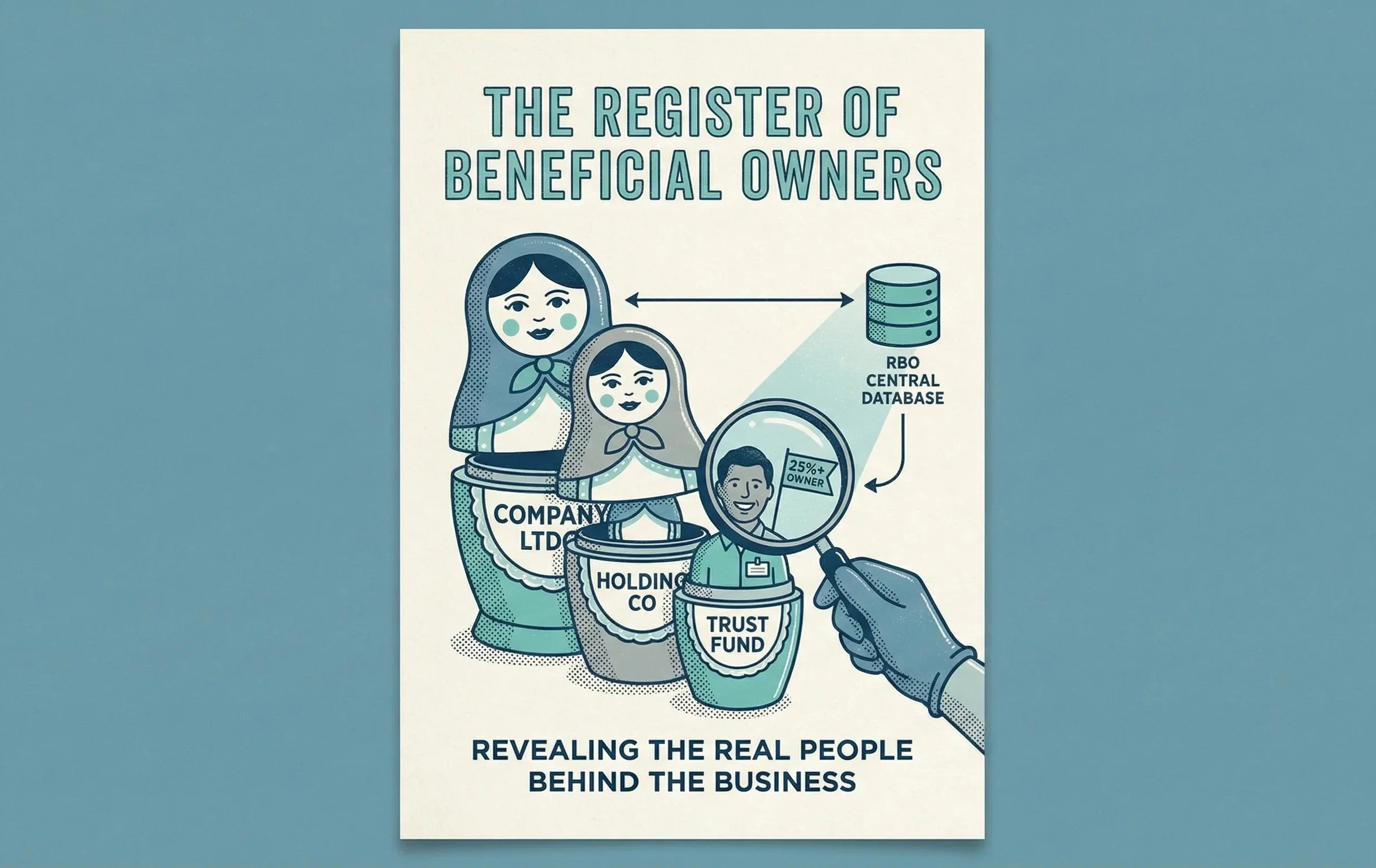This article is written for entrepreneurs, business founders, and individuals planning to establish a limited company in Ireland.
It provides essential guidance to help avoid common incorporation mistakes that can impact your business later
Key Takeaways
- Ensure your company name is distinctive and complies with CRO regulations
- Secure at least one EEA-resident director or arrange appropriate alternatives
- Appoint a qualified company secretary who understands their legal obligations
- Establish and maintain all required statutory registers from day one
- Structure share capital to accommodate future business growth and investment
- Consider seeking professional advice during the incorporation process (or just use our automated incorporation tool)

Introduction
Limited companies in Ireland represent the most common business structure for enterprises, offering personal asset protection and a clear operational framework.
Limited companies provide a separate legal personality from their owners while maintaining structured corporate governance requirements.
To set up a company, you submit a filing on the Companies Registration Office website, and there are no restrictions on who can make that filing. Because of that, we very often see brave new business owners giving it a go themselves.
While there is nothing wrong with that in principle, we often see (and have to fix) the same mistakes time and time again.
So for that reason, here is our list of five of the top mistakes we see during the company registration process:
Mistake 1: Selecting an Inappropriate Company Name
The Companies Registration Office (CRO) maintains strict naming conventions that many entrepreneurs overlook.
A company name must not be identical or too similar to existing registered entities. For instance, "Tech Solutions Limited" would likely be rejected if "Tech Solutions Ireland Limited" already exists.
Good names are distinctive and compliant, such as "Emerald Innovation Partners Limited" or "Dublin Digital Ventures Limited."
In contrast, problematic names include those suggesting state sponsorship (e.g., "Irish National Tech Limited") or containing restricted words like "Standard," "Institute," or "Bank" without proper authorisation.
You have to aim to be unique in your name choice.
Mistake 2: Misunderstanding Director Residency Requirements

A frequent oversight is failing to comply with EEA residency requirements.
Irish law states that at least one director must be resident in the European Economic Area (EEA).
Appointing solely non-EEA directors necessitates either securing a €25,000 bond or obtaining a certificate of real and continuous business activity in Ireland.
It doesn't matter where that director is an Irish or EEA citizen or not, that is not important.
Mistake 3: Casual Approach to Company Secretary Appointment

While appointing a spouse or friend as company secretary might seem convenient, this role carries serious legal responsibilities.
The company secretary has to ensure compliance with company law, maintain statutory registers, and file annual returns.
We often see founders appoint their friends/partners as company secretary but we recommend, as the business grows, an inexperienced secretary might struggle with these increasing obligations, potentially leading to compliance issues.
Appointing someone that doesn't know what they are doing, then often leads to mistake number 4.
Mistake 4: Neglecting Statutory Registers

Many new companies overlook the requirement to maintain proper statutory registers.
These essential documents include:
- Register of Members (shareholders);
- Register of Directors and Secretaries;
- Register of Directors' and Secretaries' Interests; and
- Minutes of Board and General Meetings.
There are a couple more registers but the above are the main ones.
Failure to maintain these registers can result in significant penalties and complications during due diligence processes.
Mistake 5: Restrictive Share Structure

Finally, and this is a big one that causes a lot of trouble and expense to unknowing founders, setting the "authorised share capital" too low.
We see countless accountants setting up this structure for their clients.
Authorised share capital is the amount of shares that your company will be allowed to give out - and you set the number during the registration process.
A good number to choose is 1 million or, even better (and what Open Forest will do for you) is not set a maximum number at all - so that you can issue as many shares as you want, to whoever you want, whenever you want.
Setting a low authorised share capital ceiling that can hinder future growth right from the start.
It can stop you giving shares to employees or even worse, investors. If you wan't to get Enterprise Ireland's PSSF funding, you will run into a barrier.
If this is already you, we can fix it so just send us an email.
How Can Open Forest Help?
To avoid all of the above issues, let us take care of your company incorporation - it's exactly what we do.
Open Forest offers the cheapest and fastest incorporation packages in Ireland including holding companies for €99 including CRO fees, VAT and access to the Open Forest platform so you can keep track of all of your legal, tax and accounting obligations - at no additional cost.
Choose from one of our incorporation packages here and we will take care of the rest.

Stuart Connolly is a corporate barrister in Ireland and the UK since 2012.
He spent over a decade at Ireland's top law firms including Arthur Cox & William Fry.





.webp)
.webp)
.webp)





